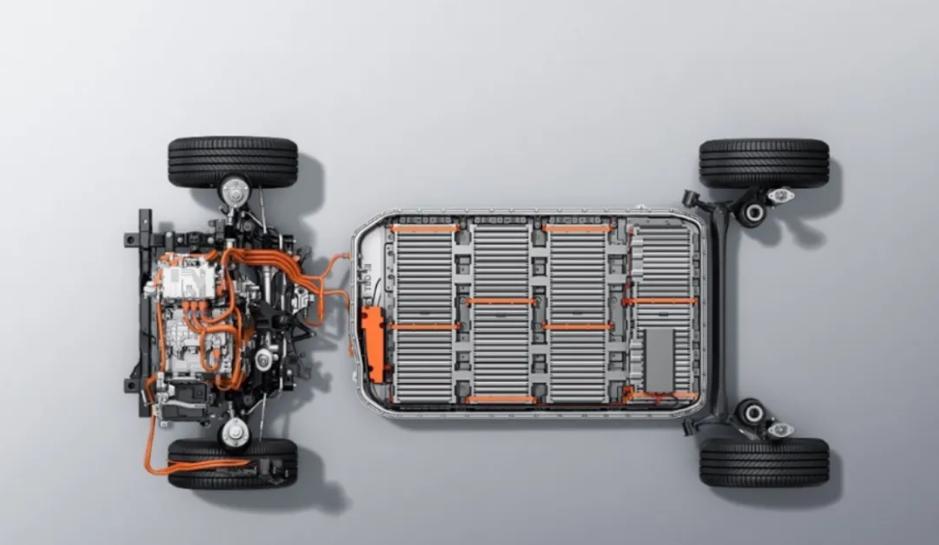
Text/Civil
Hybrid models because of the simultaneous equipped with a fuel system and a set of motor system, so has been felt by many people is not the same, the engine and the engine of the fuel car to use is not the same, the battery is also different from the pure electric model. Nickel-metal hydride batteries and lithium-ion batteries can also be subdivided.
For example, the Japanese two fields have always competed with each other in hybrid models, and the batteries equipped with different hybrid technology routes are also different. Toyota hybrid models generally use nickel-metal hydride batteries, and Honda's hybrid models use lithium-ion batteries. Although it is a completely different battery type, consumers inevitably want to be higher than one. The following is a simple comparison of the two types of batteries:
Lithium-ion batteries have many advantages
1, the discharge voltage is higher. The discharge voltage of lithium-ion batteries is generally between 3.2V-3.7V, and the discharge voltage of nickel-metal hydride batteries is 1.2V, so it is equivalent to 1 lithium-ion battery being able to top 3 nickel-metal hydride batteries, and lithium-ions are more convenient to form a battery pack.
2, higher energy density. The energy density of lithium-ion batteries is generally more than 300wh/kg, and the energy density of nickel-metal hydride batteries is only 140wh/kg.
3, the self-discharge rate is lower. When the battery charge is 100%, if the nickel-metal hydride battery is not used for one month, it will release 25%-35% of the power by itself, and under the same conditions, the lithium battery only releases 2%-5% of the power.
4, the temperature adaptability is better. The working temperature range of lithium-ion batteries can be within -20 °C -60 °C, and the working temperature range of nickel-metal hydride batteries is within -15 ~40 °C. Therefore, lithium-ion batteries will be more able to meet the use of different environments in cars.
5, lithium batteries have no memory effect, nickel-metal hydride batteries have memory effect. The memory effect is an effect of the battery contents crystallizing due to use. The reason for this is due to incomplete partial charging and discharge of the battery. This will temporarily reduce the capacity of the battery, resulting in a shortened use time.
6, weight and volume is smaller. Lithium-ion batteries have a higher energy density, so at the same capacity, lithium-ion batteries will weigh and be smaller.
7, longer service life. The number of charge cycles of lithium batteries is more than 1000 times, and the number of nickel-metal hydride batteries is generally 500 times.
8. The internal resistance of lithium-ion batteries is lower. It can discharge large currents, and there will be no virtual power after a long period of use.
Nickel-metal hydride batteries are simpler and more reliable
1. Security. Because the energy density of nickel-metal hydride batteries is low, and it uses water as an electrolyte, it is not prone to spontaneous combustion.
2. Fast charge and discharge. Hybrid systems will require batteries to be constantly charged and discharged quickly, which is better than lithium batteries.
3, the cost is lower.
Through the above analysis, it is not difficult to see that in terms of battery performance, lithium-ion batteries will be better than nickel-metal hydride batteries. But nickel-metal hydride batteries are safer, and the weight difference between the two is not large in models with small battery capacity. So no one is better, can guarantee the quality and safety of the vehicle, then the consumer can pay.
How ISD's route is different
At present, the domestic selling hybrid models are obviously BYD's DM-i series models, the industry-famous blade battery needless to say, but BYD has also subdivided the blade battery, such as the battery mounted on the DM-i model is a hybrid special power blade that is different from the EV model.
The principle of the blade battery is actually to make lithium iron phosphate into a large battery cell, and in the process of the battery cell to the battery pack, the module process is omitted. That is to say, in this way to reduce the structural level of the battery pack, to increase the number of cells in the battery pack to increase the total energy. It does not degrade the performance of the battery. Still ordinary lithium iron phosphate. However, it is a large battery cell, and some engineering means are applied at the same time to improve the safety of the single cell.
The difference between hybrid special power blade batteries is that the "power type" refers to the discharge power reaching more than 10 times the amount of electricity, and the discharge power per unit of power is higher than that of the energy battery equipped with the EV model. Since the DM-i Super Hybrid model blade battery is designed to have a power of 8.3 to 21.5 kWh, the power is much smaller than that of the EV model. Therefore, under the same power requirements, the discharge rate will be relatively large, so the discharge rate of the DM-i super hybrid special blade battery is higher than that of the power battery of the EV model, which meets the power requirements of the DM-i super hybrid model. Being able to adjust for hybrid models can also be seen by BYD's intentions in the field of new energy.
summary:
Hybrid system battery and pure electric models in terms of materials are not different, hybrid model batteries because they need faster and more charge and discharge, so need to focus on adjustment, Toyota's nickel-metal hydride batteries, Honda's lithium-ion batteries also have their own advantages, and BYD has also formed a hybrid special power blade battery through the optimization of the blade battery of pure electric models. After all, battery safety has always been important to everyone.